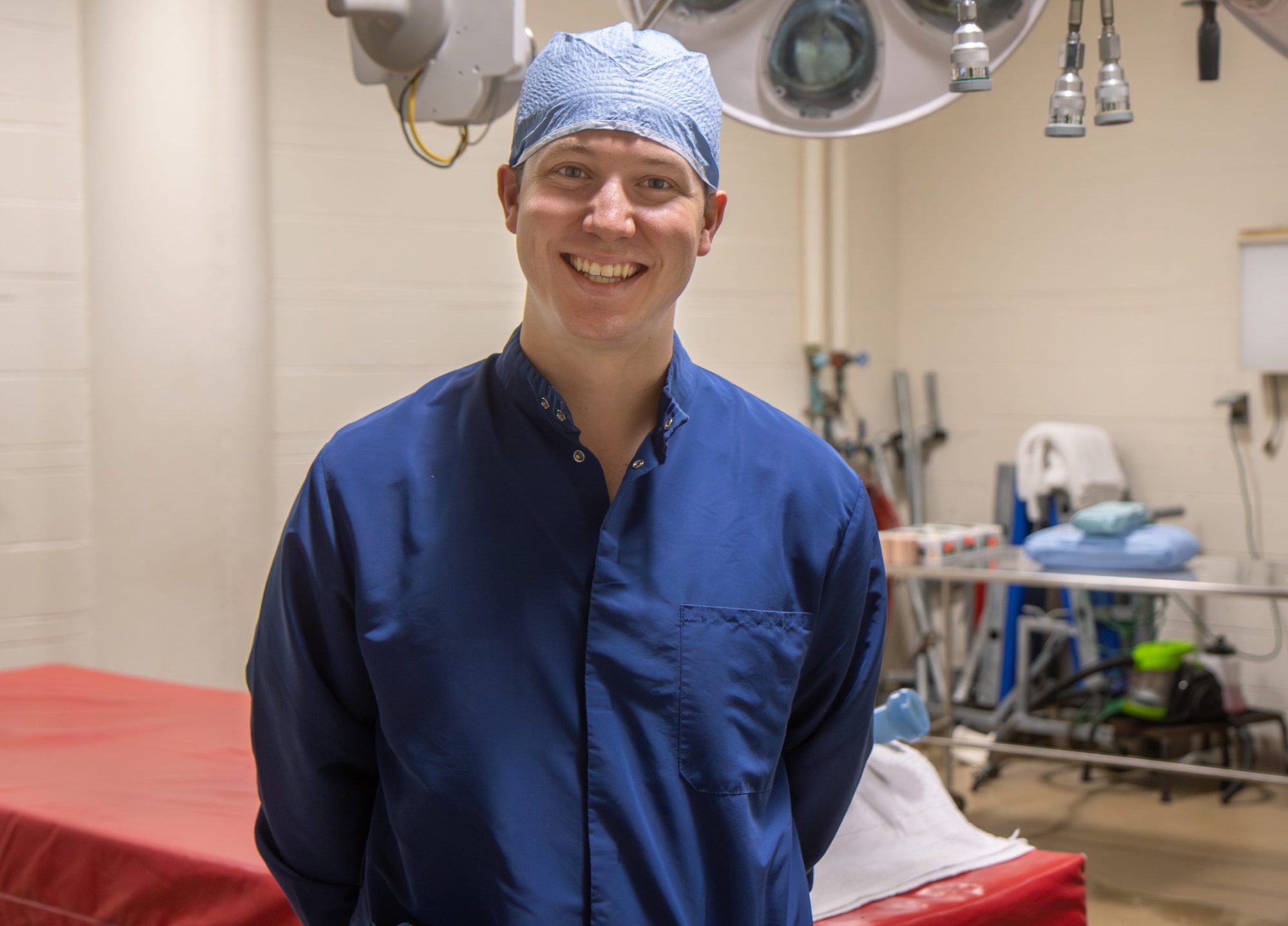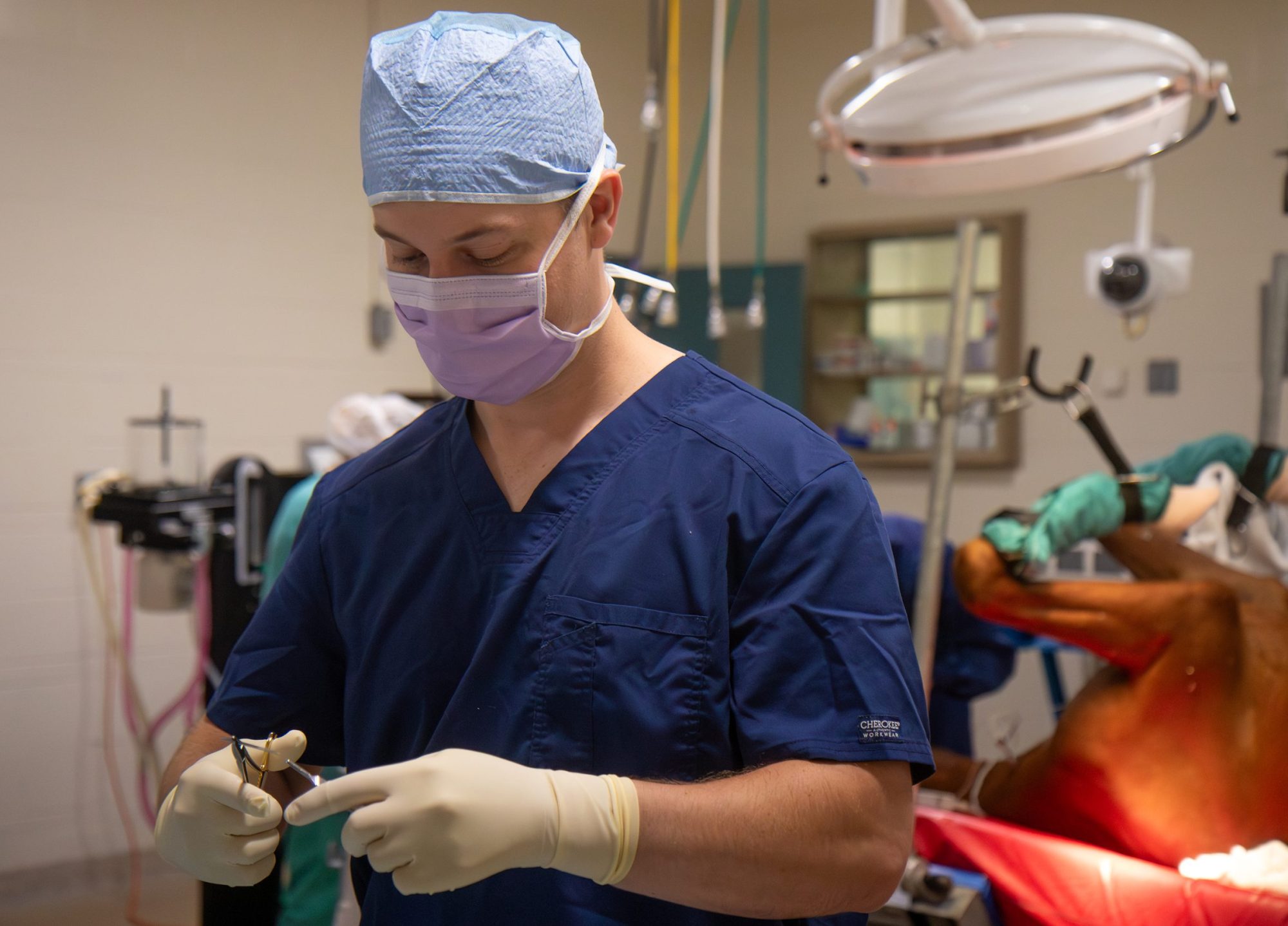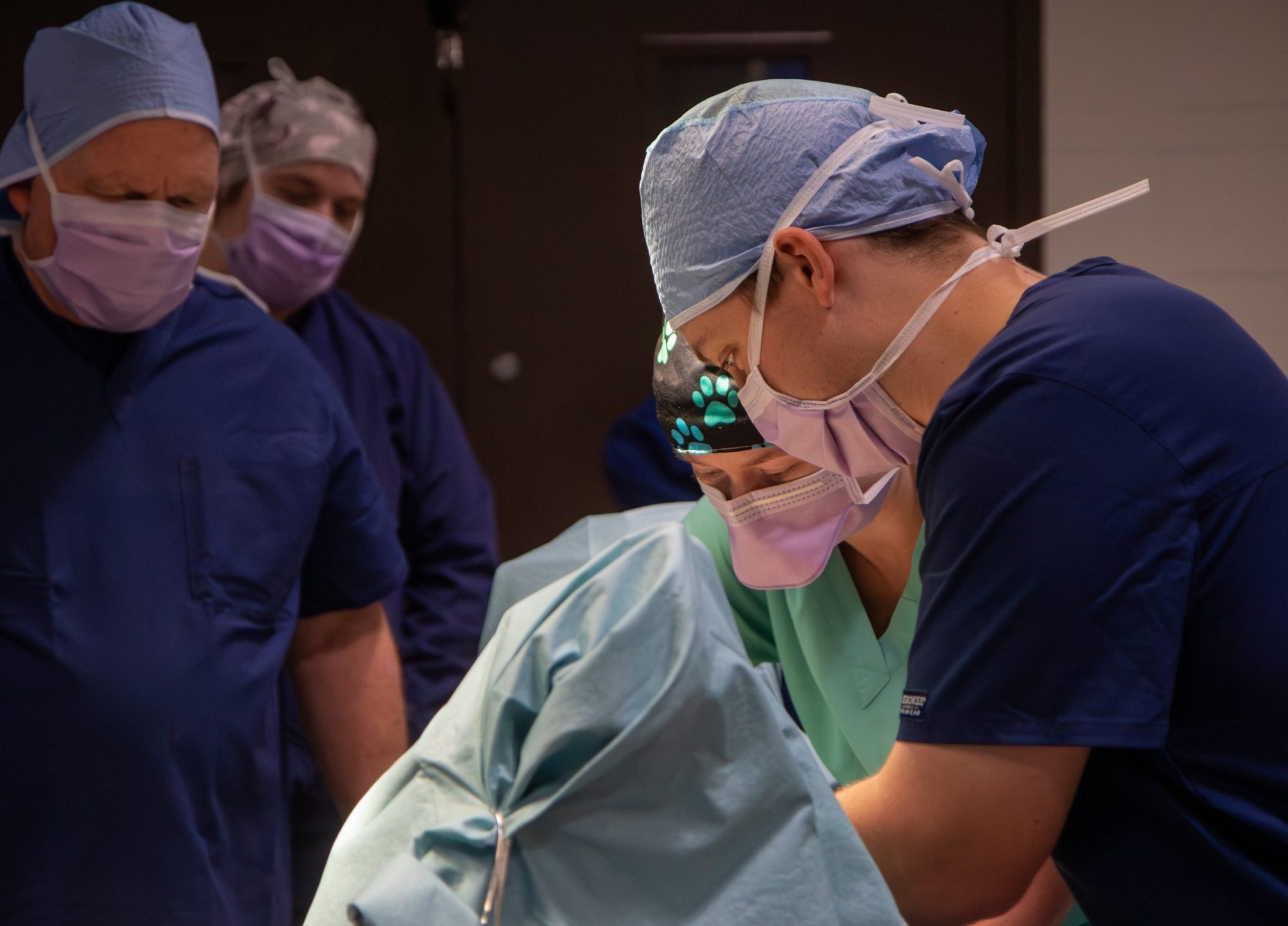Published on
Updated on
Story contact: Deidra Ashley, CVMMarCom@missouri.edu
Photos by Karen Clifford
Sam McClanahan, DVM, once imagined a future designing bridges or skyscrapers. Growing up in urban north Texas, he planned to study engineering — until a family friend and equine veterinarian invited him to shadow for a day. Watching agriculture, science and hands-on problem-solving come together to help patients sparked a passion that McClanahan couldn’t ignore.
That spark carried him through veterinary school and, eventually, to an internship at the University of Missouri College of Veterinary Medicine. There, he found more than he expected — faculty who are not only leaders in their field but also deeply committed to teaching and student success, and a team-oriented environment designed to build both skill and confidence. The quality of training and breadth of surgical experience convinced him to stay and pursue a residency in equine surgery. Now, he’s honing advanced skills while mentoring the next generation of veterinarians.
Read on for a Q&A with McClanahan about his Mizzou CVM experience.
What brought you to Mizzou, and what made you stay?
I matched here for my internship without knowing much about the College of Veterinary Medicine, other than hearing from a few colleagues who spoke highly of it. My first impression was how genuinely collaborative and student-focused the faculty and staff are. People here teach because they want to, and it shows. That passion shows every day — in the operating room, in the classroom and in the way we work together. I chose to stay and become a resident because this team is committed to doing the best for our patients, our students and each other.
You didn’t originally see yourself in surgery. What changed?
Early on, I thought surgery wasn’t for me; it takes a lot of patience, and I didn’t think I had that. But the more I learned, the more I appreciated it. What I love about surgery is that you get to make a critical intervention and watch the patient’s recovery unfold over time. There’s something incredibly rewarding about seeing that transformation and knowing you played a role in it.
What do you enjoy most about your role as a resident?
I like that I get to be both a learner and a teacher. Residents live in this middle ground — we’re still gaining advanced skills, but we’re also responsible for helping guide students through their clinical rotations. One of my strengths is breaking down complex topics into something approachable and useful, and I get to use that whether I’m talking to a student or an equine client. I really enjoy that communication piece and believe it’s just as important as the medicine.
Looking ahead, what are your career goals?
I’d like to return to Texas and work in a private referral practice, probably focusing on equine surgery. Horses are a unique blend of athlete and agricultural partner, and that makes the work exciting and meaningful to me. They live long lives, and the bond between horse and owner is special. Being part of that relationship — and helping keep those athletes healthy — is what drives me.


